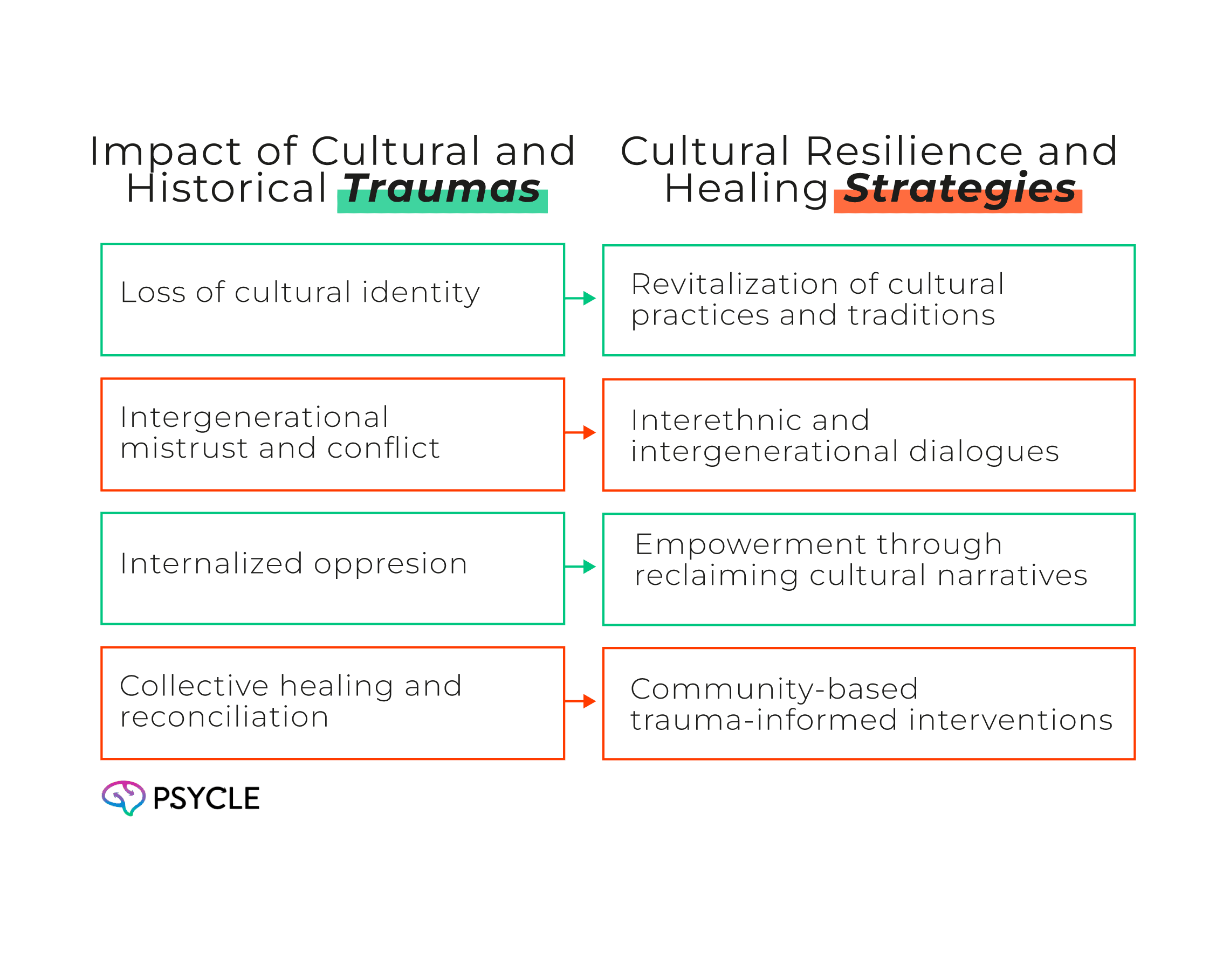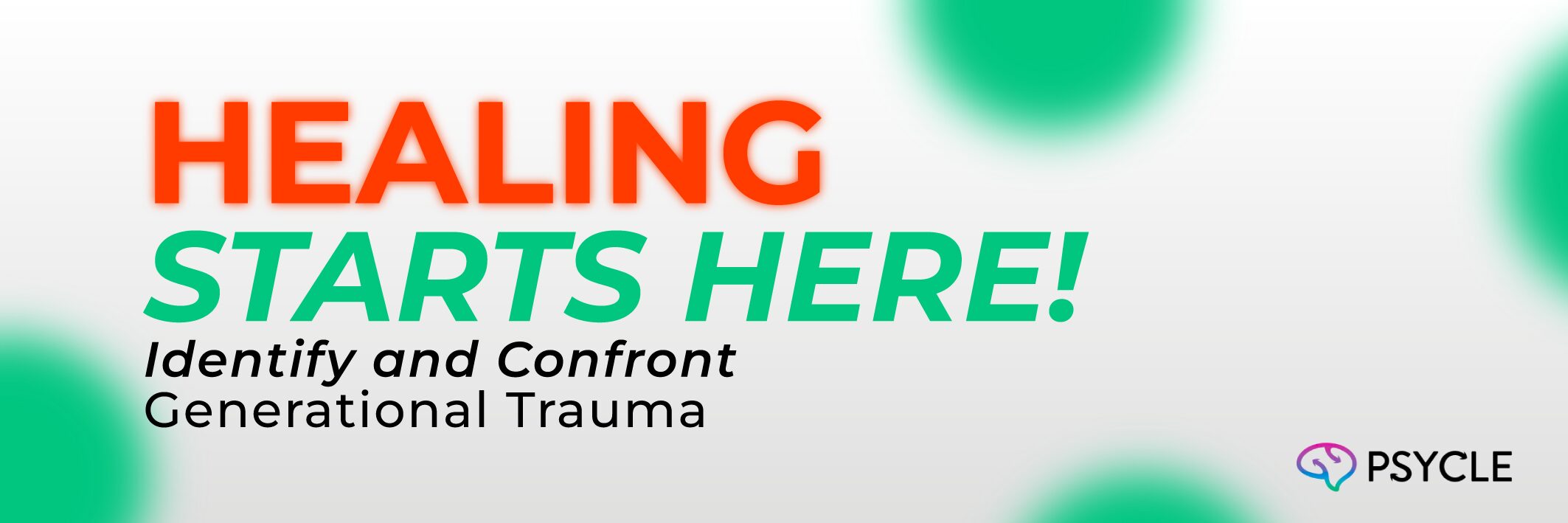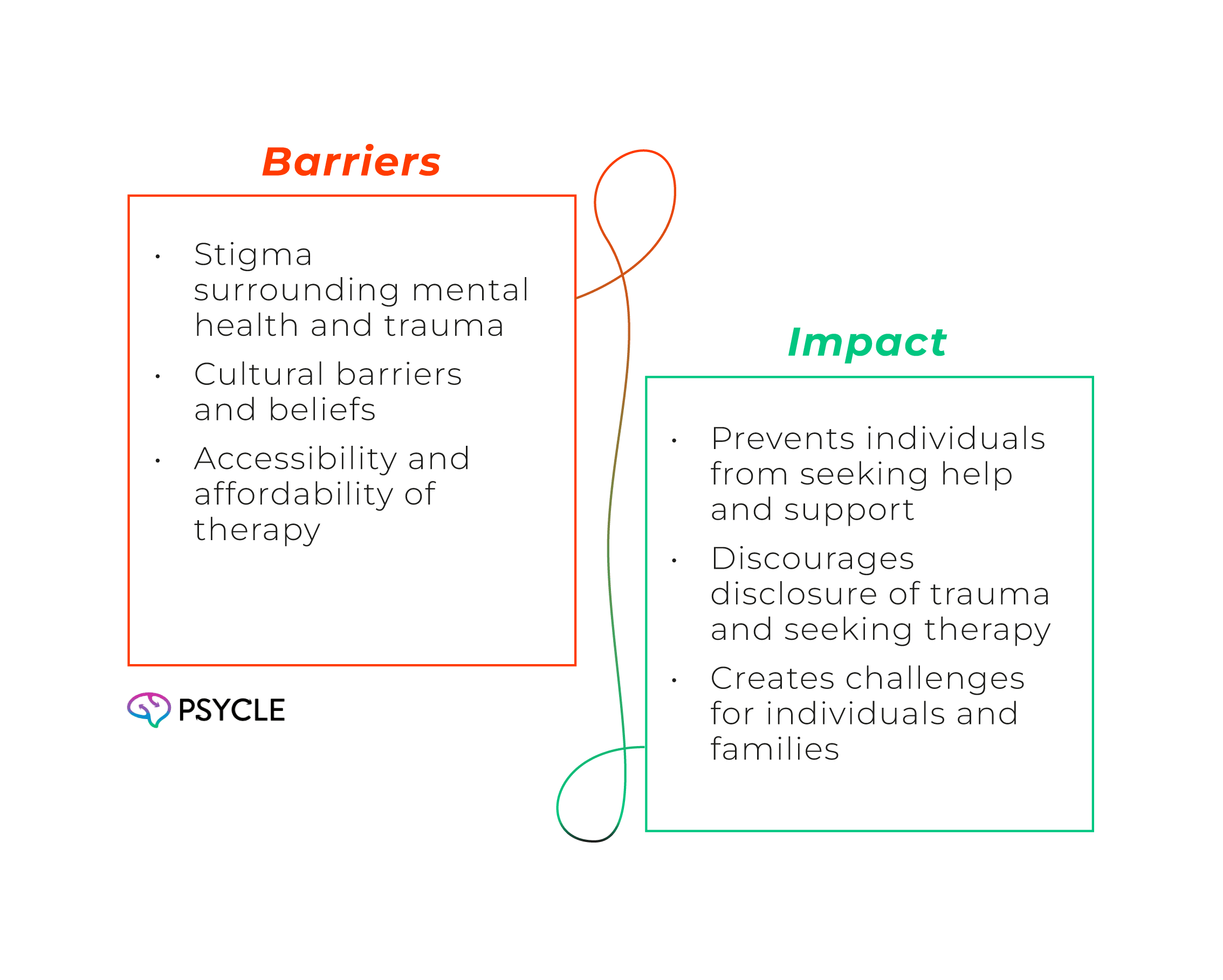Generational trauma refers to the transmission of trauma and its effects across multiple generations. When traumatic events are experienced by previous generations, they can have lasting impacts on individuals and families, influencing their behaviors, beliefs, and mental health. However, it is possible to break this cycle of generational trauma and promote healing and resilience for future generations.
Key Takeaways
- Generational trauma refers to the transfer of trauma and its consequences from one generation to another.
- Understanding the nature and consequences of generational trauma is crucial for addressing and breaking the cycle.
- Identifying personal traumas within individuals and families is the first step toward healing and prevention.
- Therapy plays a vital role in breaking the cycle of generational trauma and promoting healing.
- Breaking barriers such as stigma and accessibility can help individuals overcome generational trauma.
Understanding Generational Trauma
Generational trauma has been extensively studied in the context of historical and cultural traumas, such as the Holocaust, the Khmer Rouge killings, the Rwandan genocide, the displacement of American Indians, and the enslavement of African-Americans.
These traumatic events can have profound effects on individuals and communities, not only on a psychological level but also socially, culturally, and possibly even genetically. Understanding the nature and consequences of generational trauma is crucial for addressing its intergenerational effects and breaking the cycle.
The Intergenerational Effects of Trauma
Generational trauma can have various intergenerational impacts, influencing the beliefs, attitudes, and behaviors of individuals. These effects may include:
- Transmitted trauma symptoms
- Disrupted attachment and relationship patterns
- Cultural loss and disconnection
- Enculturation of trauma narratives
These intergenerational effects can impact individuals’ mental health, social interactions, cultural identity, and overall well-being. Recognizing and addressing these effects is essential for breaking the cycle of generational trauma and promoting healing.
The Cultural and Historical Context of Trauma
Generational trauma is deeply intertwined with cultural and historical contexts. Cultural traumas, such as systemic oppression, colonization, or ethnic conflicts, can shape the experiences and responses of individuals and communities across generations.
Likewise, historical traumas, marked by significant events or periods of collective suffering, leave lasting imprints on cultural identity and perceptions of self.
This cultural and historical lens helps us comprehend the complex interplay between individual and collective traumas, cultural resilience, and institutional systems. It highlights the importance of culturally sensitive approaches and interventions when addressing generational trauma and fostering healing.


By addressing these specific dimensions of generational trauma, we can work toward breaking the cycle and creating more equitable and inclusive futures.
Common Trauma Symptoms
A variety of symptoms can manifest after trauma. Here are a few common ones:
- Anxiety
- Depression
- Post-traumatic stress disorder (PTSD)
- Behavioral issues
- Sleep disorders
- Fatigue
- Avoidance
The Vital Role of Therapy
When it comes to breaking the cycle of generational trauma, therapy plays a vital role in promoting healing and resilience. Trauma-informed care, provided by therapists who specialize in trauma, offers professional support and guidance for individuals and families to overcome the impacts of generational trauma.
Through trauma-informed therapies like Cognitive-Behavioral Therapy (CBT) and Eye Movement Desensitization and Reprocessing (EMDR), individuals can process and heal from their traumatic experiences. These evidence-based approaches help clients develop coping mechanisms, reframe negative thoughts, and build resilience.
Having professional support throughout the healing journey is essential, as therapists can offer valuable insights, validation, and tools to process trauma effectively. They create a therapeutic alliance to foster trust and provide a non-judgmental space where individuals can express their emotions without fear of re-traumatization.
Sites like Brightside offer a free assessment. Just complete their 4-minute questionnaire, and you’ll get a personalized treatment plan and an appointment for a virtual session with a professional in less than 48 hours.


Moreover, therapy can equip individuals with the necessary skills to manage triggers, re-establish healthy boundaries, and cultivate self-compassion. By addressing the root causes of generational trauma, therapy helps individuals develop a deeper understanding of themselves, fostering personal growth, and paving the way for a brighter future.
In addition to individual therapy, group therapy and support networks can also play a crucial role in breaking the cycle of generational trauma.
Connecting with others who have experienced similar trauma allows for shared understanding, validation, and the opportunity to learn from collective experiences. Support networks provide a sense of belonging and can serve as a source of inspiration and mutual support, helping individuals realize they are not alone in their healing journey.
Trauma-Informed Therapy Approaches
There are various trauma-informed therapy approaches used to address generational trauma:
- Cognitive-Behavioral Therapy (CBT): CBT focuses on identifying and challenging negative thought patterns and behaviors that contribute to trauma symptoms.
- Eye Movement Desensitization and Reprocessing (EMDR): EMDR utilizes bilateral stimulation to facilitate the processing and integration of traumatic memories.
- Psychodynamic Therapy: This approach explores the unconscious elements of generational trauma and their impact on an individual’s present experiences.
- Family Therapy: Family therapy involves working with families as a whole to address generational trauma and promote healthy relational dynamics.
Each therapy approach offers unique benefits and may be tailored to meet individual needs. It is important to work with a licensed and experienced therapist who specializes in trauma to ensure the most effective treatment.
Overcoming Barriers
Breaking the cycle of generational trauma is a vital process, but it can be hindered by various barriers that individuals and families may face. These barriers can prevent people from seeking the help and support they need to heal and break free from the generational trauma they have inherited.
One significant barrier is the stigma surrounding mental health and trauma. Many individuals may feel ashamed or afraid to speak openly about their experiences or seek professional help. The fear of judgment and discrimination can prevent them from taking the necessary steps towards healing.
Cultural barriers also play a crucial role in perpetuating generational trauma. Cultural beliefs and norms may discourage individuals from disclosing their trauma or seeking therapy. Traditional values and practices may prioritize silence and perseverance over mental well-being, creating additional challenges for those seeking support.
Moreover, accessibility and affordability of therapy can be major barriers for individuals and families. Therapy services and mental health resources may not be readily available or affordable for everyone, especially in lower-income communities or regions with limited mental health infrastructure.
To overcome these barriers, raising awareness about the impact of generational trauma and the importance of seeking help is crucial. Education and public campaigns can help break down the stigma surrounding mental health and trauma, encouraging individuals to reach out for support.
Addressing cultural factors is also essential in promoting accessibility to therapy. Recognizing and respecting diverse cultural practices and beliefs while advocating for trauma-informed care can help bridge the gap between traditional values and modern mental health approaches.
Advocacy for accessible and affordable mental health services is another crucial step towards overcoming barriers. By advocating for policies that prioritize mental health and increase funding for therapy resources, we can ensure that therapy becomes more accessible and affordable for individuals and families, regardless of their socio-economic status.
Identifying Personal Trauma
While generational trauma is inherited, personal trauma can also present a barrier to healing. Personal trauma can result from various sources, including childhood experiences and adverse events endured throughout one’s lifetime.
Childhood experiences can have a long-lasting impact on individuals and contribute to the development of trauma symptoms later in life. Adverse events, such as accidents, violence, or loss, can also create deep emotional wounds that continue to affect an individual’s well-being.
It’s important to recognize the signs and symptoms of trauma in order to address and heal from these experiences. By identifying and acknowledging personal trauma, individuals can take the crucial first step towards healing and preventing the transgenerational transmission of trauma.


Taking the First Step
Taking the first step toward healing from generational trauma requires prioritizing self-care and reaching out for help. It is essential to recognize that healing is a journey that requires active participation and support. By engaging in self-care activities, seeking professional therapy, and building strong support networks, individuals can begin the process of breaking the cycle of generational trauma.
Engaging in Self-Care
Self-care activities play a crucial role in promoting emotional well-being and resilience. Practicing mindfulness exercises, such as meditation or deep breathing, can help individuals manage stress and develop a sense of calm. Engaging in creative outlets, such as writing, painting, or dancing, can serve as a form of self-expression and release. Additionally, cultivating healthy relationships and nurturing social connections can provide a sense of belonging and support.
Seeking Help and Professional Therapy
Seeking help from therapists who specialize in trauma is essential for breaking the cycle of generational trauma. Professional therapists can provide the necessary support, guidance, and tools to help individuals navigate their healing journey. Through therapies like CBT or EMDR, individuals can process their traumatic experiences, develop coping mechanisms, and work towards healing and resilience.
Building Support Networks
Building strong support networks is crucial for breaking the cycle of generational trauma. Support can come from various sources, including support groups, friends, family, or trusted individuals. Sharing experiences, emotions, and insights with others who have experienced similar traumas can provide validation, understanding, and a sense of community. Building a support network helps individuals feel seen, heard, and supported throughout their healing journey.
Epigenetics and Generational Trauma
Epigenetics play a significant role in understanding the transmission of generational trauma. The term “epigenetics” refers to the study of heritable traits. Epigenetic changes can be influenced by behaviors and the environment, providing insights into how generational trauma may be passed down through generations.
Epigenetic Changes and Reversibility
By understanding how behaviors and environmental factors can influence epigenetic modifications, we can begin to break the cycle of generational trauma by implementing positive changes in our lives.
Existing research suggests that factors such as what you eat and the environment you live in can contribute to epigenetic changes. Following a healthy diet and a regular exercise routine may have a positive impact on epigenetic modifications, particularly among people who are susceptible to chronic and metabolic diseases—but the relationship between epigenetics and generational trauma is an area that requires more study.
Impact of Trauma on Health
In addition to its profound effects on mental health, trauma can also have significant consequences for physical well-being. Research has shown that generational trauma can impact the body in various ways, increasing the risk of certain cancers and even affecting the health of future generations.
One way in which trauma can affect physical health is through epigenetic changes. These changes can alter gene expression without modifying the DNA sequence itself. Trauma-related epigenetic modifications can weaken the immune system, making individuals more vulnerable to infections and illnesses.
The impact of trauma on health can also extend to future generations. Nutrition during pregnancy plays a crucial role in fetal development, and studies have shown that maternal nutrition can influence epigenetic changes in the fetus. Trauma experienced by the mother during pregnancy can potentially alter the epigenetic profile of the developing baby, influencing their health later in life.
Recognizing the impact of trauma on overall health is essential for comprehensive healing and intervention. By understanding how trauma affects both mental and physical well-being, individuals and healthcare professionals can develop effective strategies for addressing the long-term consequences of generational trauma.
The Bottom Line
Breaking the cycle of generational trauma requires collective effort and individual commitment. By acknowledging and addressing personal traumas, seeking therapy, and participating in support networks, individuals can play an active role in breaking the cycle. Therapy plays a crucial role in healing and promoting resilience for future generations.
Supporting accessible and affordable mental health services is essential in ensuring that therapy is available to all who need it. By advocating for trauma-informed care and raising awareness about the transgenerational impact of trauma, we can contribute to breaking the cycle at a broader level. Together, we have the power to make a difference.
FAQs
How Can I Identify Personal Trauma?
Personal trauma can stem from childhood experiences or adverse events throughout one’s lifetime. Symptoms may manifest as anxiety, depression, PTSD, or behavioral issues. Recognizing and addressing personal trauma is the first step towards healing and preventing its transgenerational transmission.
What Are Some Barriers to Breaking the Cycle of Generational Trauma?
Barriers to breaking the cycle of generational trauma include stigma surrounding mental health and trauma, cultural beliefs and norms, and the accessibility and affordability of therapy. Overcoming these barriers requires raising awareness, addressing cultural factors, and advocating for accessible and affordable mental health services.
What Can I Do to Take the First Step Towards Healing From Generational Trauma?
Seeking help from therapists, support groups, or trusted individuals can provide the necessary support and guidance throughout the healing process. Building strong support networks is crucial for breaking the cycle of generational trauma.
How Does Trauma Impact Overall Health?
Trauma can impact physical health in various ways. Trauma-related epigenetic changes can weaken the immune system, making individuals more susceptible to infections. Certain epigenetic changes can also increase the risk of developing certain types of cancer. Additionally, nutrition during pregnancy can influence epigenetic changes in the fetus, potentially affecting their health later in life.
What Can I Do to Promote Resilience and Healing?
Promoting resilience and healing involves both individual and collective interventions. Individual interventions include therapy, self-care practices, and building strong support networks. Collective interventions include community support programs and culturally relevant initiatives that address the collective trauma experienced by specific groups. Recognizing intergenerational strengths and fostering resilience empowers individuals and communities to overcome the impacts of generational trauma.
What is the Role of Therapy in Breaking the Cycle of Generational Trauma?
Therapy plays a crucial role in healing and promoting resilience for future generations. By acknowledging and addressing personal traumas, seeking therapy, and participating in support networks, individuals can play an active role in breaking the cycle. Supporting accessible and affordable mental health services, raising awareness about the transgenerational impact of trauma, and advocating for trauma-informed care can contribute to breaking the cycle at a broader level.
What is Generational Trauma?
Generational trauma refers to the transmission of trauma-related impacts from one generation to another. It can be caused by historical events, such as genocide or enslavement, and can affect individuals psychologically, socially, culturally, and possibly even genetically.
How Can I Break the Cycle of Generational Trauma?
Breaking the cycle of generational trauma involves identifying and acknowledging personal traumas, seeking therapy for healing, and building strong support networks. It also requires raising awareness, addressing cultural barriers, and advocating for accessible and affordable mental health services.

